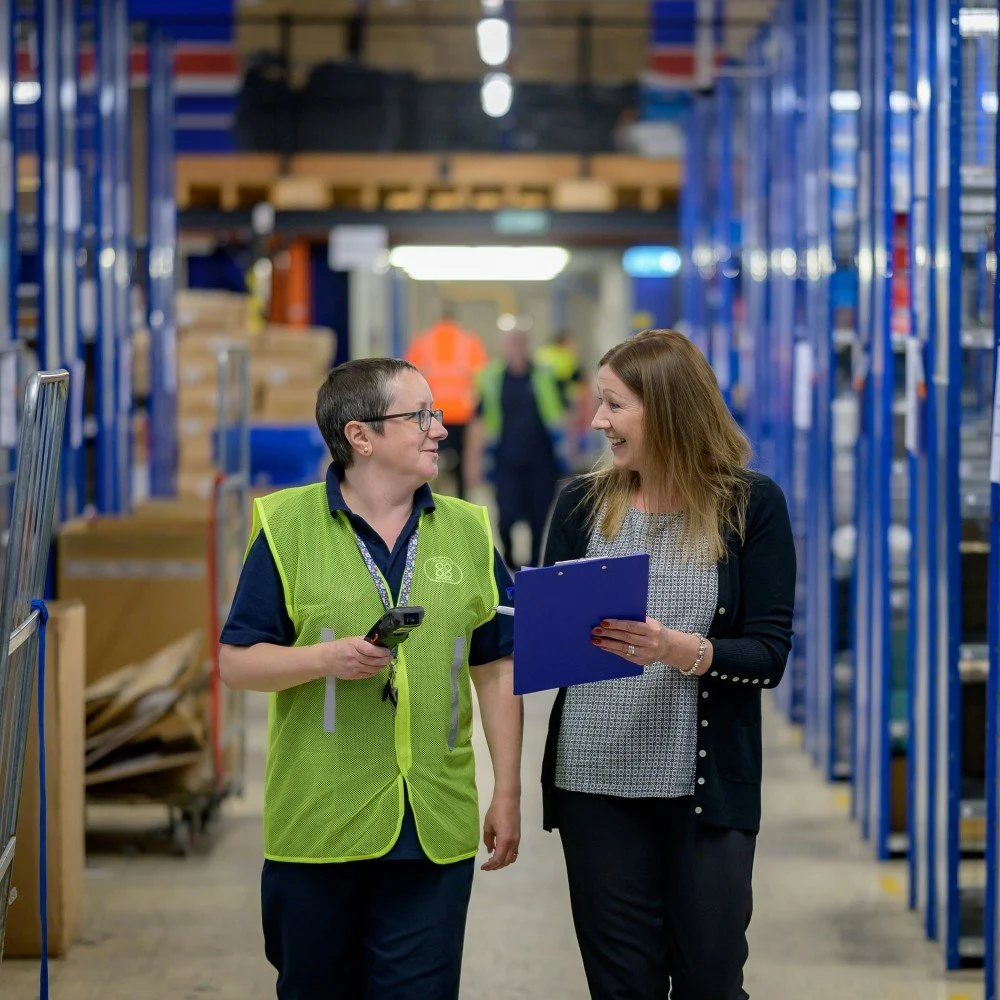Selecting the right co-man: What to Look for and How to Work Together
Working With a Co-Man: Key Points Outline
Create A Partnership
Solve Problems; Don’t Assign Blame
Appreciate Plant Schedulers
The Power of Clear Communication
Commercialization is more than just selecting ingredients or packaging—it’s about where and how you scale. And that often means working with a contract manufacturer.
And a lot of people really race to that point because they’re starting to run out of cash and runway.
But selecting the wrong contract manufacturer can reset you back to zero.
In some cases, it can put you below zero and just put you out of business.
You have to pay attention not only to how that contract manufacturer communicates, but what equipment they have and how they philosophically think about their products.
If you select based on geography alone (because it’s convenient, or because you’re looking at your P&L and trying to save on transportation) you’ll miss out on the savings that a further-away co-man can deliver simply by not creating headaches for you.
By simply solving problems.
Because they have a culture of solving problems and making food, rather than being litigious over individual grievances.
At the end of the day, select the co-man that works best with you, regardless of where they are in the country.
Create a partnership
Once you've found a co-man with the right capabilities, the real work begins: building a strong working relationship. Some people in the food industry think that contract manufacturers are like a vending machine. You put money into and get product out. I know that in business schools, many people are taught that a contract manufacturer is simply a way to access an operations system; to build a product and execute it at scale. I disagree, and here’s why:
While that may be how it behaves on a balance sheet, from an operational and day-to-day management perspective, they are your production partners. They are, in effect, a second business unit. One with a different driving force, but integral to your product and the way you execute.
That’s why it’s critical to find contract manufacturers who work with you, communicate well, and focus on solving problems when they arise, rather than assigning blame.
“Contract Manufacturers are NOT like vending machines.
They are a second business unit.”
“Everybody makes money when production runs. Pointing fingers when production fails serves no one.”
Solve Problems; Don’t Assign Blame
Every day in operations, problems happen. The trick is to remember that your contract manufacturer's business model works best when they produce.
So, when they reach out saying, "Hey, we were unable to meet our production volumes during this time frame," the best approach is to work with them: "Okay, what went wrong? How can we help? How can we make our product more efficient on your system?" And, "Is there a way we can assist with additional supplies for testing, trial resources, or upgrades to equipment?"
By focusing on the problem—rather than simply asking, "When are you going to have it to us?"—you signal to them that they have a true partner in you, someone invested in keeping production running.
Everybody makes money when production runs. Pointing fingers when production fails serves no one.
Instead, helping them navigate production pitfalls builds a stronger, more successful relationship; one where they begin solving some of their own production issues, rather than calling you every time a problem pops up.
Appreciate Plant Schedulers
There are so many players that come into making a food product not only commercializable, but also scalable.
And the one person who often gets the short end of the stick from everyone is the plant scheduler.
The plant scheduler is dealing with all of the incoming pieces:
Not only the ingredients, but also the packaging, as well as the people who need to be on site for those particular runs.
They handle all the front-end elements associated with scheduling labor, getting the equipment up and running in time, and making sure that everything is in place for a successful run.
Because if anything is missing, for example if the boiler is out because it needs to be serviced that day, the run simply can’t happen.
The number of times that everything doesn’t come into place is so low… that really speaks well of our schedulers out there.
So for those of you in that position: thank you.
“For all the plant schedulers out there:
Thank you.”
“Your co-man relationship will make or break your ability to scale.
Build it with care.”
The Power of Clear Communication
One time we were working on a salad dressing, and we were called in because for some reason, the product was falling apart.
It had been running just fine for years, but all of a sudden, it started falling apart.
We found out that there had been a starch swap that took place around the same time.
What happened was that the contract manufacturer couldn’t get the original supply of the right number, so they swapped in a different one with a slightly different number and thought it would be okay.
At the end of the day, they were actually negating the effect of the starch entirely, and we ended up with something like a ranch dressing with the consistency of olive oil.
Whether it’s selecting the right partner or keeping communication lines open, your co-man relationship will make or break your ability to scale. Build it with care.
Author: Jamie Valenti-Jordan
20+ years in food & beverage commercialization. If you’re tackling a tricky project, odds are I’ve seen it before. I’ll be sharing the things that worked here—so you can skip the 'learning experiences'.


